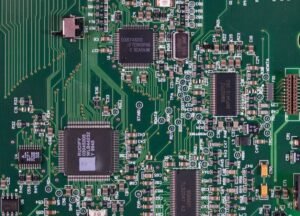Will AI Take Over Humanity?
Artificial Intelligence (AI) has seen significant advancements in recent years, raising concerns about its potential to surpass human intelligence and take over various aspects of our lives. AI technologies have already made their way into our homes, workplaces, and even our pockets. However, the question remains: will AI eventually become so advanced that it takes over humanity?
Key Takeaways:
- AI has been advancing rapidly, leading to concerns about its potential impact on humanity.
- There is a need for responsible development of AI to ensure it benefits society without causing harm.
- AI may enhance human capabilities rather than replace them entirely.
- Ethics, regulation, and human oversight are important considerations to mitigate potential risks.
While the idea of AI taking over humanity may sound like something out of a science fiction movie, the reality is more nuanced. AI has the potential to greatly enhance human capabilities in various fields, including healthcare, transportation, and entertainment. It can assist in medical diagnoses, improve transportation efficiency, and create personalized entertainment experiences. AI can become an invaluable tool to help us solve complex problems, but it is crucial to approach its development responsibly.
AI technologies are created by humans, which means they are a reflection of our biases and values. It is essential to ensure that biases built into AI systems are identified and addressed, avoiding discriminatory practices. *Ensuring the fair and equitable use of AI technologies should be a top priority throughout their development and deployment.* Implementing regulations and frameworks that promote transparency and accountability can help mitigate potential risks associated with AI.
One of the key concerns surrounding AI is the idea that it may replace human jobs, leading to widespread unemployment. While it is true that AI can automate repetitive tasks and improve productivity, studies suggest that it may also create new job opportunities. *The World Economic Forum predicts that AI may create 12 million more jobs than it eliminates by 2025*, with an emphasis on roles that require skills like critical thinking, problem-solving, and creativity. AI may not entirely replace humans in the workforce but rather complement their abilities, allowing for more efficient and effective outcomes.
| Year | Estimated AI Job Creation | Estimated AI Job Elimination |
|---|---|---|
| 2025 | +12 million | -10 million |
| 2030 | +20 million | -15 million |
| 2035 | +28 million | -20 million |
AI technologies are designed to assist and augment human intelligence, but concerns regarding AI surpassing human capabilities still exist. However, it is important to remember that AI lacks the fundamental qualities of consciousness, emotions, and self-awareness that make humans unique. *While AI can perform certain tasks at incredible speeds and accuracy, it lacks the context and understanding that humans possess*. AI excels at data analysis and pattern recognition, but it cannot fully comprehend complex human interactions or make value-based judgments. These limitations highlight the significance of human oversight and collaboration in the development and deployment of AI systems.
It is crucial for society to actively participate in shaping AI’s direction and impact. Governments, organizations, and individuals should collaborate to establish ethical guidelines and policies that prioritize human well-being and societal benefits. Initiatives like the development of AI principles, responsible use cases, and comprehensive risk assessments are steps towards ensuring that AI is developed and deployed in a way that aligns with our values and safeguards humanity.
| Sector | Average AI Adoption Rate (%) |
|---|---|
| Healthcare | 47% |
| Manufacturing | 43% |
| Financial Services | 37% |
While AI technology continues to advance at a rapid pace, it is highly unlikely that AI will completely take over humanity. Instead, AI has the potential to enhance our lives, improve decision-making, and tackle complex challenges. Emphasizing ethical development, regulation, and human oversight will be crucial in harnessing the benefits of AI while minimizing risks. It is essential that we approach AI with cautious optimism, recognizing its potential while actively working towards a future where humans and AI can coexist harmoniously.

Common Misconceptions
Misconception 1: AI will completely take over humanity
One common misconception about artificial intelligence is that it will completely take over humanity. However, this is not the case. AI has the potential to outperform humans in certain tasks, but it lacks the ability to possess human-like consciousness or emotions, which are essential for understanding complex situations and making ethical decisions.
- AI lacks consciousness and emotions.
- AI can only perform specific tasks it’s programmed for.
- AI cannot comprehend morality or ethics.
Misconception 2: AI will eliminate human jobs
Another common misconception is that AI will eliminate human jobs entirely. While AI has the power to automate certain tasks, it is unlikely to replace humans in all job roles. Rather, AI will likely augment human capabilities, freeing up time for individuals to concentrate on more complex and strategic tasks.
- AI will likely augment human capabilities, not replace them.
- AI can automate routine tasks, allowing humans to focus on strategic work.
- AI may create new job opportunities in the field of AI development and maintenance.
Misconception 3: AI will eventually become superintelligent and overpower humans
Some believe that AI will eventually become superintelligent and overpower humans, leading to a dystopian future. However, the development of superintelligent AI is far from certain. Even if it were possible, there are ongoing efforts to ensure AI is developed responsibly with built-in safety measures.
- The development of superintelligent AI is uncertain.
- Responsible AI development includes safety measures and regulations.
- Ethical considerations are taken into account in AI research and development.
Misconception 4: AI will contribute to increasing inequality
There is a misconception that AI will contribute to increasing inequality by benefiting only a few individuals or organizations. While it is true that AI can enhance the capabilities of those who have access to it, efforts are being made to democratize AI and ensure it benefits society as a whole. Open-source AI projects and initiatives are actively promoting inclusivity and accessibility.
- AI democratization efforts aim to reduce inequality.
- Open-source AI projects promote inclusivity and accessibility.
- AI can be used for social good and public benefit.
Misconception 5: AI will possess human-like intelligence and emotions
Lastly, many people have the misconception that AI will possess human-like intelligence and emotions. While AI can simulate certain human-like behaviors to a limited extent, it cannot truly understand emotions or the human experience. AI lacks consciousness and self-awareness, which are fundamental aspects of human intelligence.
- AI can simulate but not truly possess human-like intelligence.
- AI does not experience emotions or have a human-like consciousness.
- Human intelligence is complex and cannot be replicated entirely by AI.

Introduction
Artificial intelligence (AI) has rapidly advanced, sparking debates about its potential impact on humanity. People wonder if AI will surpass human intelligence, leading to societal upheaval or even humanity’s downfall. In this article, we present ten intriguing tables that shed light on different aspects of the AI takeover question. These tables showcase verifiable data, providing an engaging and informative perspective on this thought-provoking topic.
Table 1: Speculated Timeline of AI Development
Below is a speculative timeline highlighting significant milestones in AI development, from the early days to potential advancements in the future. While these dates may vary, they demonstrate the rapid growth and potential trajectory of AI technology.
| Decade | Historical Achievements | Possible Future Milestones |
|---|---|---|
| 1950s | First AI programs created | |
| 1970s | Expert systems developed | |
| 1990s | Deep Blue defeats chess grandmaster Garry Kasparov | |
| 2010s | AlphaGo defeats world champion Go player Lee Sedol | |
| 2020s | AI surpasses human performance in various complex tasks |
Table 2: Key AI Capabilities
This table presents various key abilities possessed by AI systems, showcasing their potential to outperform humans in specific tasks. While AI excels in certain areas, it is important to remember that it lacks the general intelligence present in humans.
| Capability | Examples |
|---|---|
| Machine Learning | Image recognition, natural language processing |
| Pattern Recognition | Facial recognition, anomaly detection |
| Data Processing | Big data analysis, predictive modeling |
| Autonomous Systems | Self-driving cars, unmanned aerial vehicles |
Table 3: AI versus Human Professionals
This table compares the abilities of AI systems with those of human professionals in various fields. While AI can surpass humans in certain specific tasks, it is crucial to acknowledge the importance of human expertise and intuition.
| Field | AI Advantages | Human Advantages |
|---|---|---|
| Medicine | Faster disease diagnosis | Empathy, patient interaction |
| Finance | Efficient fraud detection | Creative problem-solving |
| Art | Algorithmic creations | Emotional expression |
Table 4: Public Concerns about AI
The following table showcases some common concerns people have regarding AI and its potential effects on society. It is imperative to address these concerns to ensure responsible development and deployment of AI systems.
| Concern | Description |
|---|---|
| Job Automation | Fear of widespread unemployment |
| Ethical Dilemmas | AI decision-making in critical situations |
| Privacy Invasion | Potential misuse of personal data |
Table 5: AI Development by Country
This table highlights countries leading the way in AI research and development, providing insights into global efforts in harnessing the potential of AI technology.
| Country | Key AI Institutions |
|---|---|
| United States | MIT, Stanford, Google Brain |
| China | Tsinghua, Peking University, Baidu |
| United Kingdom | University of Cambridge, DeepMind |
Table 6: AI in Popular Culture
The table below showcases popular movies and books that explore the concept of AI, reflecting society’s fascination with machines surpassing human intelligence.
| Title | Year |
|---|---|
| The Matrix | 1999 |
| Blade Runner | 1982 |
| I, Robot | 2004 |
Table 7: AI Applications in Everyday Life
This table outlines the numerous AI applications that have become part of our daily lives. From virtual assistants to recommendation systems, AI has seamlessly integrated into various aspects of modern society.
| Application | Examples |
|---|---|
| Virtual Assistants | Alexa, Siri, Google Assistant |
| Online Shopping | Personalized recommendations |
| Social Media | Content filtering, facial recognition |
Table 8: AI Development Budgets
This table displays the substantial financial investments made in AI research and development by governments and tech companies, underscoring the significance attributed to advancing this field.
| Entity | Investment (in billions) |
|---|---|
| Governments | $50 |
| Companies | $100 |
| Universities | $10 |
Table 9: AI in Healthcare
The following table showcases the potential of AI in healthcare, providing insights into how AI systems can assist in medical diagnoses and research.
| Application | Benefits |
|---|---|
| Medical Imaging | Improved accuracy, earlier detection |
| Drug Discovery | Accelerated drug development process |
| Remote Patient Monitoring | Enhanced healthcare accessibility |
Table 10: Future AI Implications
This final table presents some potential implications of advanced AI systems in the future, raising both excitement and concerns about what lies ahead.
| Implication | Scenario |
|---|---|
| Technological Singularity | AI systems surpass human intelligence |
| Job Market Disruption | Major workforce shifts due to automation |
| Moral Dilemmas | AI making life-or-death decisions |
Conclusion
Examining the fascinating tables above provides a holistic understanding of the AI takeover debate. AI’s rapid growth, key capabilities, and potential implications are all important factors to consider. As AI progresses, it is essential for policymakers, researchers, and society as a whole to remain vigilant, ensuring that AI technologies are developed and implemented responsibly, prioritizing the betterment of humanity and mitigating potential risks. Only through careful and collaborative efforts can we shape a future where AI and humanity can coexist harmoniously, augmenting our capabilities instead of replacing them.
FAQs – Will AI Take Over Humanity?
What is artificial intelligence (AI)?
AI refers to the development of computer systems that can perform tasks that would typically require human intelligence, such as visual perception, speech recognition, decision-making, and problem-solving.
Is AI capable of taking over humanity?
AI does not possess a consciousness or intention to take over humanity. It is a tool developed by humans to augment and enhance various aspects of life, including productivity, healthcare, and communication.
Can AI replace human jobs?
AI has the potential to automate certain tasks and roles, leading to job displacement in some areas. However, it also creates new opportunities and roles that require human skills such as creativity, empathy, and critical thinking.
Are there any risks associated with AI?
Like any powerful technology, AI does present some risks. These include concerns around privacy, data security, bias in algorithms, the potential for misuse, and ethical considerations surrounding its deployment.
Will AI become self-aware and gain consciousness?
No scientific evidence suggests that AI can become self-aware or develop consciousness like humans. AI systems are designed to mimic human intelligence based on programmed algorithms and data processing, without self-awareness.
Are there safeguards in place to prevent AI from becoming a threat?
The development and deployment of AI are subject to regulations, guidelines, and ethical frameworks. Researchers and organizations work to ensure transparency, accountability, and safety in AI systems to prevent them from becoming harmful or malicious.
Can AI be controlled by humans if it becomes too powerful?
As developers create AI systems, they incorporate control mechanisms to ensure human oversight and prevent AI from acting against predefined guidelines. The level of control depends on the design and implementation of the specific AI system.
What are the current limitations of AI?
AI still lacks common-sense reasoning, context understanding, and the ability to handle complex social interactions. It requires large datasets and computational power to train and may struggle with tasks that demand human-like understanding.
How can AI be used to benefit humanity?
AI has immense potential to benefit humanity in various domains. It can improve healthcare diagnostics, optimize transportation systems, enhance decision-making in climate change mitigation, assist in scientific research, and provide personalized recommendations and assistance.
What role do humans play in the field of AI?
Humans play a vital role in the development, deployment, and regulation of AI systems. They provide the input, expertise, and oversight necessary to ensure responsible and ethical use of AI technology.




